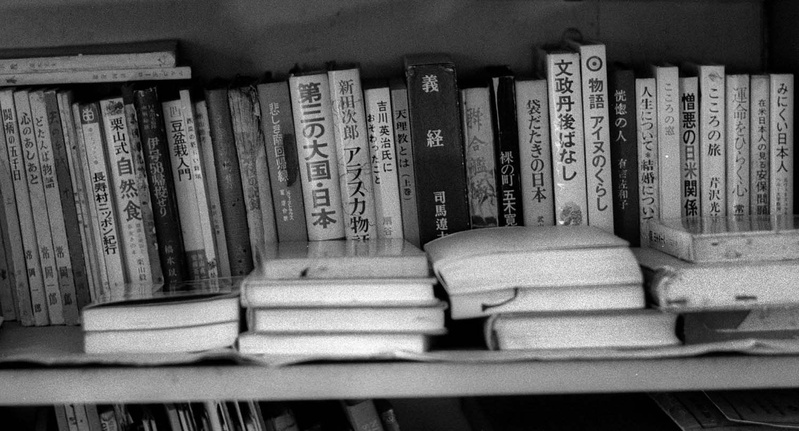It is not widely known that at the beginning of the 20th century, there was a Japanese settlement project in Florida, USA. A "Japanese village" called "Yamato Colony" was established, where pineapples and vegetables were grown. However, due to harsh natural conditions and soaring land prices, the colony was dismantled before the war, and most of the settlers left.
Among them, Morikami Sukeji (George Morikami), who remained in the area until the end and left his name in the local area by donating the vast amount of land he had acquired to the local area, remained single all his life and lived a simple life, passing away in February 1976 at the age of 89 without ever returning to Japan.
What was Morikami thinking and feeling as he lived alone, dreaming of his own dreams in a foreign land with which he had no ties? In order to explore this question, I have organized and introduced the large number of letters he has sent to his sister-in-law's family in Japan under the title "Lonely Nostalgia." I would like to look back on the history of the colony and Morikami once again and explore the feelings of an American immigrant through these numerous letters.
Motivated by heartbreak
Morikami Sukeji was born in 1886 (Meiji 19) as the eldest son of a farming family in Joto Village, Yosa County, Kyoto Prefecture (later Miyazu City), near Amanohashidate, one of Japan's Three Most Scenic Spots. Sukeji was in love with Onizawa Hatsu, who lived nearby, and one day proposed marriage to her, but was opposed by Hatsu's father, so he gave up. Around this time, a man from his hometown invited Sukeji, who was heartbroken, to work in a pineapple field in America.
He was given a loan for travel expenses, which would be paid off after three years of working there, and he would also receive a bonus. Without even knowing what Florida was like, Sukeji decided to emigrate. In April 1906, at the age of 19, Sukeji boarded a ship from Yokohama Port bound for Seattle. He crossed the Pacific Ocean, then traveled east and south by rail, and finally arrived in southern Florida. The Japanese colony leader, Sakai Jo, and others had already settled there and were active.
While studying abroad at New York University, Sakai, who was originally from Miyazu, learned that the state of Florida was being developed due to the expansion of its railroads, so he gathered together Japanese people he had met in New York and those from his hometown and started a colony construction project. Among the many intellectuals and wealthy people in the area, Sukeji, who did not speak any English, worked hard to produce pineapples in the subtropical climate, despite being plagued by mosquitoes and snakes.
Three years passed. However, the wealthy man who had promised to pay him a bonus died of an illness in the country, and as a result, the promise was broken. He had no money and could not return to Japan. His hope of returning to Japan and proposing marriage to Hatsu again was also dashed.
Deciding that he had no choice but to stay in the area, Sukeji went on to work as a live-in employee in an American's home, and eventually rented land and began cultivating vegetables. This got on track, and by 1912, six years after he had arrived in America, he had made a profit of $1,000 in one season. Around this time, he also began to buy land little by little.
Once a wealthy man
The production and sale of vegetables, along with mail order sales to distant areas, made Sukeji a large fortune. Around this time, railroads in Florida extended south, connecting Miami to the remote island of Key West. Hotels were built, and Florida began to attract attention as a resort destination from people in large cities in the northeastern United States. This caused land prices to soar, and Sukeji became wealthy by selling land and investing in stocks.
However, the land boom soon collapsed, and banks in Florida went bankrupt, causing Sukeji to lose all his savings. Penniless once again, Sukeji devoted himself to farming again and gradually recovered. However, in the process, he developed a stomach ulcer and had to undergo surgery.
In Suketsugu's neighborhood, the Japanese settlers one by one stopped farming and left Florida. Eventually, tensions between Japan and the United States rose, and when war broke out, the former Japanese colonies were confiscated. Suketsugu was no longer able to grow and sell vegetables, and his assets were frozen, so he had no choice but to work as a tenant farmer.
Write letters over and over
When the war ended, Sukeji started growing vegetables and pineapples again, and at the same time gradually bought more land. Sukeji was now the only Japanese person connected to the colony who owned land and continued to farm.
Before the war, Miyazu's parents died. His younger sister, who remained at home, moved in with her husband, and so technically, Suketsugu's family had an heir. He was concerned about his family, but had no intention of inheriting the family business. He never returned to Japan to visit his parents' graves.
His relationship with his family faded, but he felt especially sorry for Suketsugu's younger brother Yoneji, who had died in an accident during the war, and his wife and two daughters, and he continued to write letters to the Okamoto family and even provided them with financial support.
Sukeji, who continued to live alone as a single man, was an avid reader and had no trouble writing letters. He seemed to write letters to his sister back home and to acquaintances in Japan whenever he had the chance, and he would send letters to the Okamoto family in particular several times a month.
First, he wrote to his sister-in-law, then to his two nieces. The contents of the letter are mainly about 1) farming in Florida and his life, 2) the current situation of the Okamoto family, 3) memories of his hometown, and 4) plans for the future.
Why didn't you go back to Japan?
Regarding his life in Florida, he gives a detailed account of what crops he grows, how he farmed, and how he suffered severe damage from typhoons. He also tells us that he lives a lonely but carefree life alone, and that he is supported by his American friends.
As for the Okamoto family, he worries about his two nieces' further education and job hunting, and sometimes acts like a father to them. He listens to his sister-in-law's concerns about various household issues and gives her serious advice. His feelings gradually deepen, and at one point he expresses his desire to become a father to his nieces, suggesting that he is considering marrying his sister-in-law.
As an extension of this, he also hinted at returning to Japan and inviting his family to America. In particular, he made specific plans to return to Japan, repeatedly saying, "I'll be in Japan around this time." He also seemed to be considering building a house in Japan and living there together. In addition to his relationship with the Okamoto family, he also planned to return to Japan as a trip. To that end, he even inquired at the consulate to confirm his passport.
However, after a while he had second thoughts and was reluctant to put his plan into action. He would often say that he had land but no cash. However, he undoubtedly had enough money to return home, and it would have been possible if he had sold the land. His feelings were likely to waver. Perhaps he thought that a certain level of success would not be enough to bring him home in glory, or perhaps he was too embarrassed to face his sisters who had been unfaithful, or perhaps he was afraid that if he returned now he would end up feeling like Urashima Taro. Whatever the case may be, his reasons were never clearly confided to the Okamoto family.
Unfulfilled dreams and reality
Apart from returning to Japan, he also said that he was serious about going to South America at some point and trying to make a name for himself again. A farmer at heart, he was fairly successful in his farm business on the vast lands of America, but Florida was rapidly developed and it seems that Sukeji, who loved the great outdoors, found his environment increasingly cramped. On the other hand, Sukeji's lifestyle, which revolved around a trailer home, could not be described as very modern, and from his appearance he came to resemble a recluse.
Perhaps it was also because he was single and lived alone. His lifestyle did not change, and he lived in a different flow from the flow of the times, always holding on to the feelings he had when he first emigrated. It seems as if he was gradually building a kingdom in his own spiritual realm. Perhaps he was dreaming once again of making it a reality in South America, where there is still plenty of room for development.
But dreams are just dreams, and they never came true. But what's amazing about Suketsugu is that he fought alone to the very end to make his dream of developing and cultivating a farm a reality on his own land in Florida. He frequently wrote letters to the Okamoto family, asking them to "send me seeds of XX" in order to cultivate Japanese crops. He looked forward to seeing the flowers bloom and grow in the future. He would say things like, "Even if I die tomorrow, I'll sow the seeds today."
Making a name for Florida
In the letter, he says, "All I can think about is my hometown," and he reminisces about the scenery of his hometown, the trees and crops planted at his family home, the food, his younger brother, the old stories his grandfather told him, and fishing in Miyazu Bay.
Furthermore, he remembers and talks about his first love forever. Not only that, he even finds out her address and eventually exchanges letters with her. However, there is not much mention of his parents. It seems that he was neglected by his father.
He fell ill many times, got injured, and was even attacked by robbers. In his later years, he continued to complain of physical pain, was covered in wounds, and often complained that he couldn't do it anymore. But he still went out to the fields to plant pineapples, and continued farming as long as he could move.
He gradually stops talking about returning to Japan, and in the end he shows his determination to spend the rest of his life there, thanking America and saying, "I am old and all alone in the world. I grow ill in a foreign land, but fortunately I have no worries about food. I owe it all to this country. I would like to give something back while I am still alive."
At the same time, he sighs, "Seventy years have passed since I came to America. I tried hard, but I couldn't accomplish anything. It was just a long-held dream."
When it's all over, everyone may think that their life was nothing but a dream. However, in Suketsugu's case, it seems he had a good dream. This is evidenced by the fact that his wish to "leave his name in Florida" was realized on the land he donated. It remains in Florida to this day as the "Morikami Museum & Japanese Gardens."
(Titles omitted)
© 2020 Ryusuke Kawai







